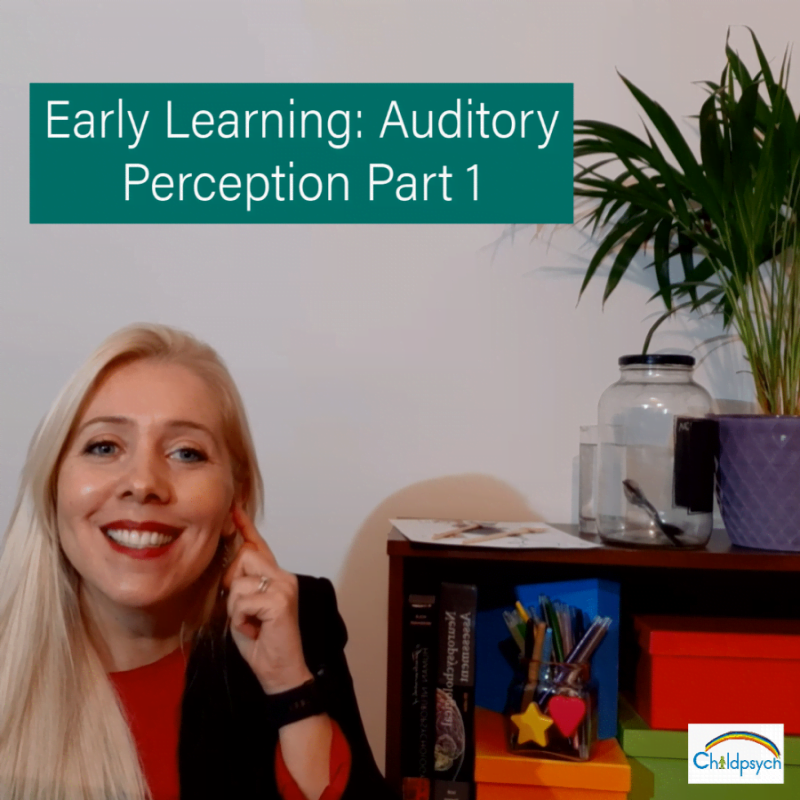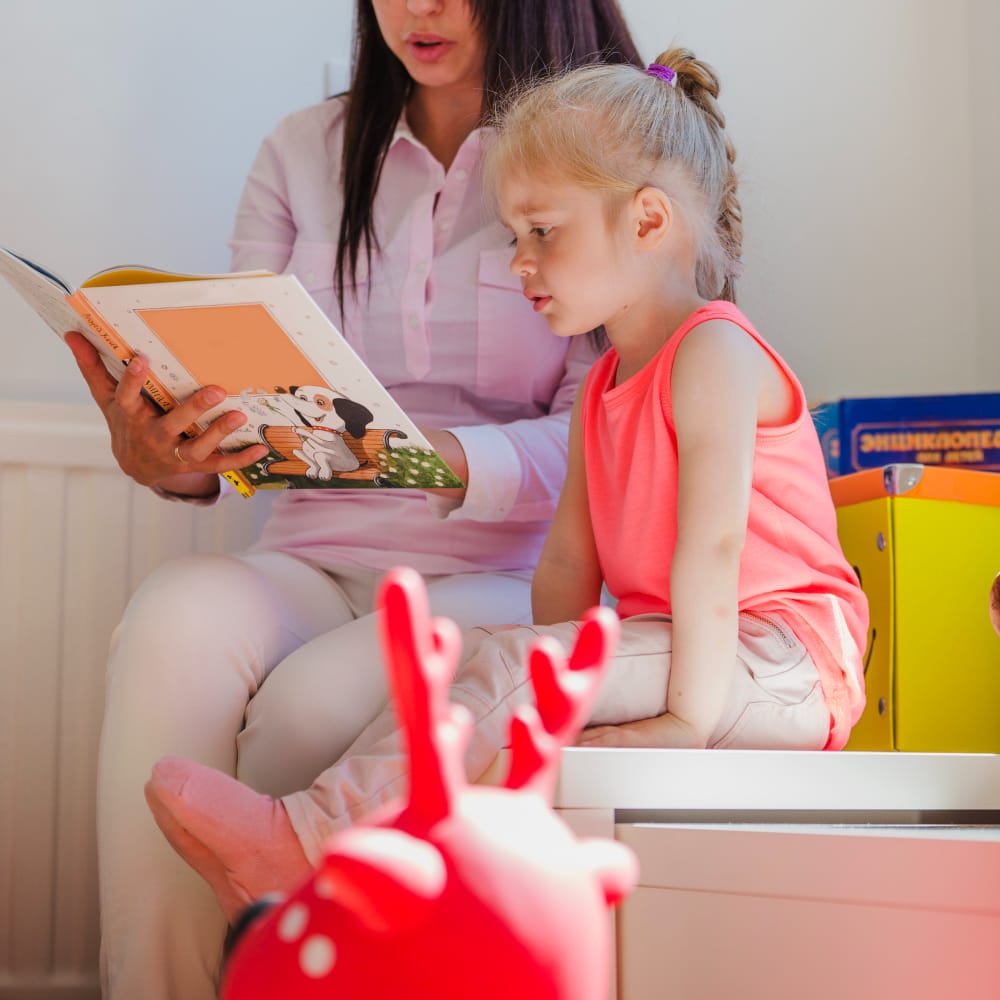Welcome back to this second installment in our Early Learning Series. In last week’s video we looked at three important principles to keep in mind when teaching young children. In the introduction, I had also mentioned that we would be dividing the series up into four divisions. These are: Auditory Perception, Visual Perception, Concept Development and Motor Control.
Auditory Perception:
We are going to start by focusing on Auditory Perception first, because it is often the most neglected aspect of Early Learning. Because you can’t see auditory perception, we tend to forget how important it is. But think about the process of reading for a bit. Reading is all about turning sounds and words into symbols. So auditory perception is our starting block for learning to read.
It is important to keep in mind that Auditory Perception is about so much more than just hearing. You’re child may be able to hear perfectly, but still struggle with auditory perception. That’s because auditory perception is about what your brain does with the information it receives from the ears.
Today, we’ll be looking at three aspects of Auditory Perception. These are: Auditory Discrimination, Rhyming and Syllabification.
Auditory Discrimination:
Auditory Discrimination means being able to hear the differences between words. And by default, if you are able to hear how words differ this means that you will also be able to hear when words are the same. Here is a quick example. You’ll need to use your auditory discrimination skills to hear the difference between words like: line / lion, or fish / dish.
It is really important. If your child has weak auditory discrimination skills, he will:
- Find it difficult to understand what other people are saying
- Have unclear speech himself
- Struggle to identify phonemes when the time comes for him to learn to read (phonemes are the smallest identifiable parts of words)
Now, it is important to mention that recurrent ear infections may hamper the development of your child’s auditory discrimination skills. Similarly, it is important to correct children when they pronounce words incorrectly. If you do not, they will not learn to correctly distinguish the sounds in words.
Games you can play to improve your child’s auditory discrimination skills are:
- Identifying whether words are similar or different
- I spy with my little eye
- Broken telephone
- Simon Says
- Go on a sound walk
- Have a tongue twister competition
- Make a sound jar
Rhyming
Rhyming is a fantastically fun and beneficial activity for kids. Being able to identify rhyming words means that children will later be able to identify “word families” – an essential part of early reading instruction. Word families might include a group of words like: fat, cat, sat, mat, rat. These are all members of the -at word family. Change the first letter and you are able to read many words!
Activities to practice rhyming with your children include:
- Reading classic nursery rhymes, singing songs and reading stories with rhymes
- Make up your own rhyming words
- Creative a personal rhyme book (or picture puppets)
- Have a rhyming basket
Syllabification:
This may be a big word, but the concept is really easy. Syllabification is all about breaking words up into syllables. This is a really important skill to have in order to read words you are unfamiliar with and to spell long words. When I first started teaching nursery school, I was surprised at how easily young children fared with this task. But in hindsight, it makes sense given how often parents need to enunciate words when their children have selective hearing 🙂
Ways in which to practice Syllabification include:
- The clapping game / using a mirror or cupping your jaw (more about this in the video above)
- Syllable completion
We continue with Auditory Perception Next week:
Be sure to practice the skills with your children throughout the week. And next week, we’ll be adding some more learning activities you can do at home. In the next episode, we continue to look at Auditory Perception as we discuss Analysis, Synthesis and Sequencing.
For more information or to book a consultation, please phone Anel on 083 711 5267
Other videos in this series include:
6 Mistakes parents make when teaching their child to read




